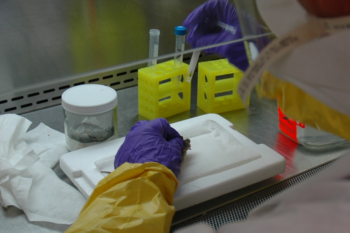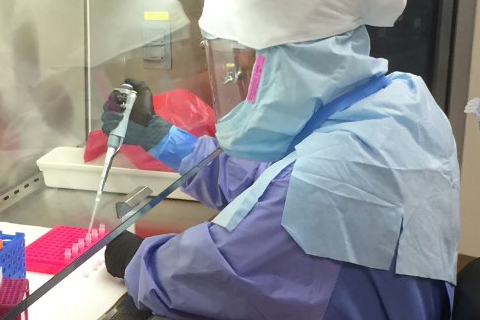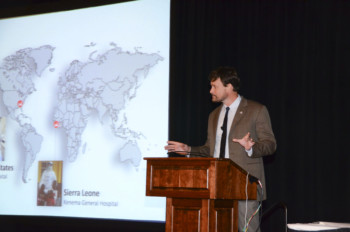Biosafety
What is Biosafety?
The concept of Biological Safety (or biosafety) has paralleled the development of the science of microbiology and its extension into new and related areas including tissue culture, recombinant DNA, animal studies, molecular biology, synthetic biology, and biotechnology. The knowledge and skill gained by microbiologists necessary to isolate, manipulate, and propagate pathogenic microorganisms required parallel development of containment principles, facility design, and practices and procedures to prevent occupational infections in the workplace or release of the organisms to the environment.
What is a Biosafety Professional?
A biosafety professional develops and participates in programs to promote safe microbiological practices, procedures, and proper use of containment equipment and facilities; stimulates responsible activities among workers; and provides advice on laboratory design.
Who Conducts Biosafety?
Regardless of background and education, biosafety professionals must develop knowledge of the principles of epidemiology, disease transmission patterns, risk-assessment and risk management, disinfection and sterilization, disease prevention, aerobiology and environmental control. Biosafety professionals include:
- Microbiologists
- Industrial Hygienists
- Biologists
- Engineers
- Molecular Biologists
- Veterinarians
- Occupational Health Professionals
- Environmental Health Professionals
- Clinical Health Care Professionals
- Biosecurity Professionals

Where do Biosafety Professionals Work?
The field of biosafety includes a range of positions and environments. Biosafety professionals find positions in:
- Universities
- Hospitals
- Research facilities
- Pharmaceutical companies
- Military and government agencies
- Biotechnology industry

How do I Prepare for a Career in Biological Safety?
- Take microbiology courses at an accredited university, which may include courses in virology, medical or pathogenic microbiology, plant microbiology, and mycology
- Take additional courses in other areas such as molecular biology, biotechnology, regulatory law
- Join ABSA International (ABSA)
- Participate fully in ABSA sponsored seminars
- Join local affiliates for networking opportunities
New to the Biosafety Profession?
Recommended Courses for Entering Biosafety Professionals
The Member Resources Committee (MRC) has compiled this list of biosafety courses that will be beneficial to those biosafety professionals looking to expand their expertise.

Is There Credentialing for Biosafety Professionals?
Currently there are two types of credentialing for biosafety professionals:
Certified Biological Safety Professional (CBSP)
Certified Biological Safety Professionals (CBSP) pass a written exam and meet experience and educational criteria set by ABSA International.
Registered Biosafety Professional (RBP)
A Registered Biosafety Professional (RBP) is an individual with a documented university education or specialized training in relevant biological safety disciplines and been found to be eligible for registration by the ABSA Credentialing Evaluation Board.
image sources
- Training_5033crop: Owned by the author
- UC-Irvine-BSL-3_480x320: UC Irvine BSL-3 Laboratory Training
- 15_sciprog05: Owned by the author

